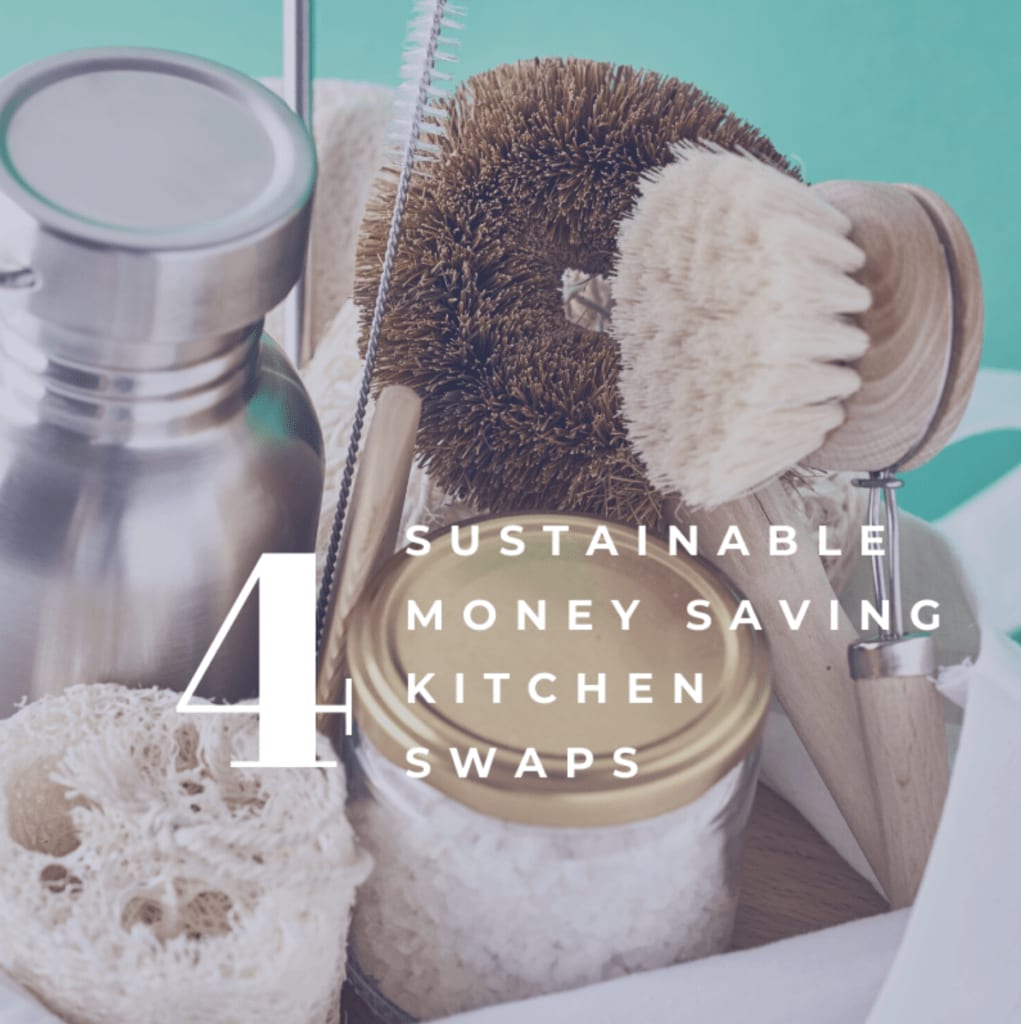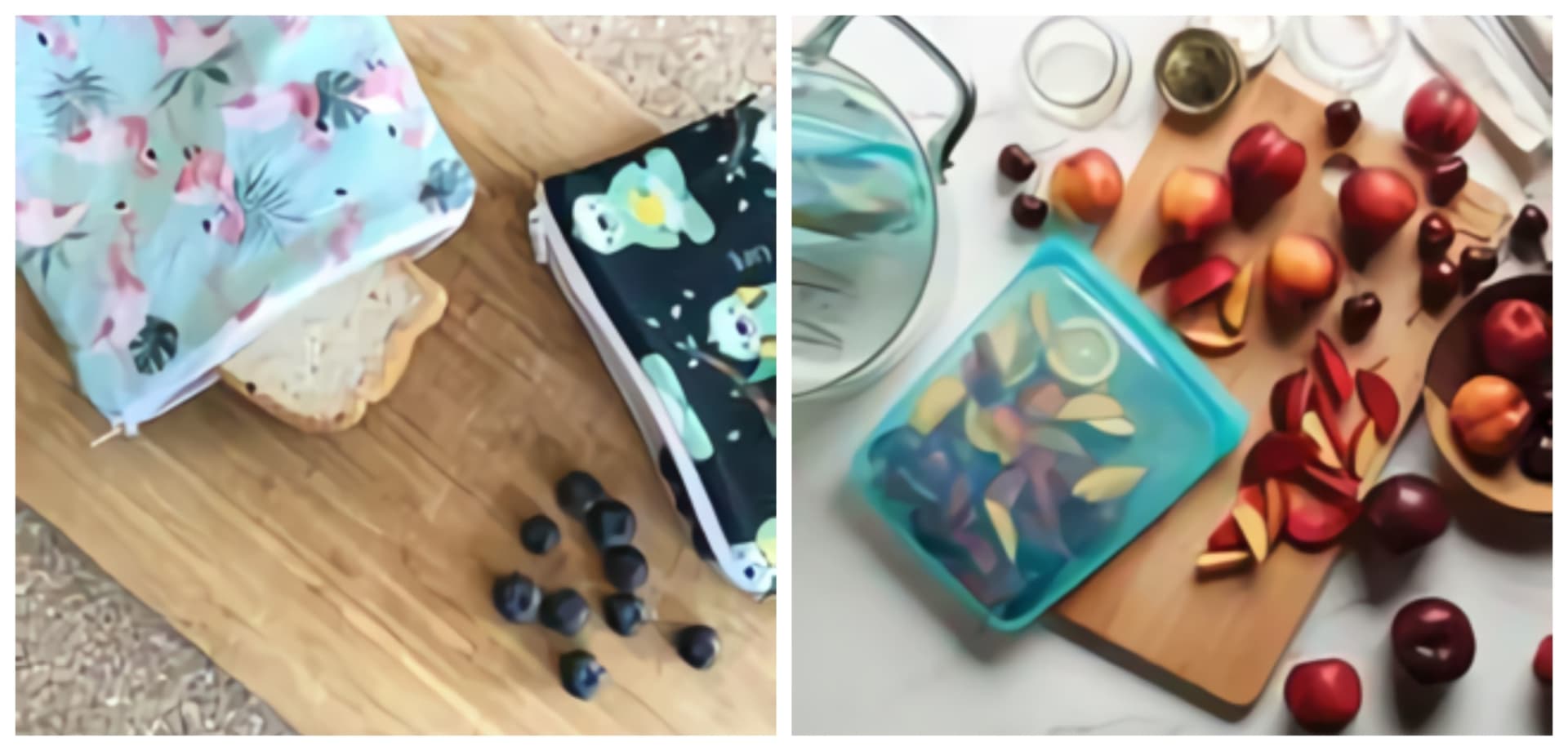
We’re Thrilled to have a new guest contributor who I think will really vibe with my clients. Recently pairing with The Conscious Merchant in our Louisville office location I thought we’d take it a step further and have them as a guest contributor for the blog and the newsletter. I’m so excited to share about what I have learned about conscious living as well as learn alongside you about more ways I can make a difference to improve the health of ourselves, our communities, and our planet.
We have all heard the saying “a penny saved is a penny earned,” and while little expenses often go unnoticed, they definitely add up. When looking at your finances you may not consider plastic baggies and paper towels but when you total up how much you spend in a year, you may be surprised.
Here is a quick roundup of just how much money you can be saving with a few product swaps. The best part? You’re helping save the earth too!
Plastic Bag Alternatives
Plastic products are everywhere. For many people, resealable plastic baggies are apart of our daily routines. In fact, 10.63 million used 21 or more plastic sandwich bags per week in 2019. They don’t biodegrade, can take 400 to 1000 years to break down and if they have touched food they can’t be recycled. Plus these baggies can leach harmful chemicals into the food they come into contact with
A 300-count of plastic sandwich bags cost $15.99, roughly $0.05 per bag. Switching to a silicone bag will run you $14.95 meaning they pay for themselves in the same amount of time you use a box of sandwich bags! They come in so many shapes, sizes, colors, and materials and are great for so much more than packing lunch. Meal prepping, bulk food shopping, they even hold liquids and prevent freezer burn better than plastic ones.
Aside from the cost, there are several reasons to switch your plastic bags over to reusable ones. From a health and safety standpoint, using silicone bags can prevent harmful chemicals from attaching to your food. Environmentally it just makes sense, less plastic being produced and so much less waste! Reusable bags are long-lasting, washable and keep your family and the environment safe.

Plastic Wrap
One industry research group found that nearly 80 million Americans had used at least one roll of plastic wrap in the past 6 months. With it being single-use and non-recyclable, plastic wrap contributes to the larger plastic pollution problem. It ends up in the trash often hours or days between its first use. When it gets to the landfill or incinerators, PVC and PVDC, the main ingredients in plastic wrap today, can release a highly toxic chemical called dioxin.
The average American family uses 24 rolls of plastic wrap per year. With two boxes of plastic wrap costing around $4 that adds up to almost $90 a year. This beeswax wrap kit has three sizes of wraps, and for $21, so it will pay for itself in the time it takes you to use 5 rolls of plastic wrap. There are cloth bowl covers for every size with the most expensive being $16! It really is a no brainer to stop buying plastic wrap and move towards these money and earth-saving products!
Long before plastic wrap was invented in the 1930s, people used wax paper to store their food. Today we use something similar, beeswax wraps! Made from GOTS certified cotton and then covered in Organic Tasmanian beeswax, jojoba oil and then Natural tree resin to make them sticky like plastic wrap. With tons of sizes and patterns available, these are sure to replace plastic wrap in no time. They are super easy to use, the heats from your hands will mold them around whatever you are trying to store. Best of all they can be easily washed by hand so they are 100% reusable!
Another option is reusable cloth bowl covers. The elastic on the side makes the covers, easy to use. They are great covers to keep leftovers in the fridge, bringing dishes to a potluck or even mason jars! There is even a waxed option so you can use them just like beeswax wraps, but they mold to you bowls even easier!

Coffee Filters
Throwing away coffee filters and grinds on a daily basis adds up quickly. Not to mention instant coffee “cups” that are made entirely of plastic and can’t be recycled easily. Most filters are made from paper and wood pulp, meaning trees are cut down for your cup of joe. While some coffee filters might be compostable, at the end of the day, the resources used to make coffee filters could be used towards something more important.
Consider switching to a more eco-friendly cup of brew! The classic french press is a great place to start. We love the pour-over coffee-maker! These brew coffee in the traditional way, where water and beans are slowly filtered to bring out the best of the coffee. The stainless steel filter can be used again and again and again – and unlike an ordinary paper filter, the steel filter does not draw out the coffee aromas! French Presses are another great option and they are available anywhere you can buy coffee. There are even reusable K-Cup filters, although we’ll save our reasons to reconsider Keurigs another day.
The cost comparison depends on what product you use, but by switching you will save resources instantly. Not to mention, coffee grinds are great for your garden, skin and compost-here are a few ways you can use them! Of course, make sure you are serving your cup of joe in a reusable cup, we love these cute cork ones!

Paper towels
Every day in the United States, 3,000 tons of paper towel waste is produced. That equals the weight of one car, in just paper waste. 544,000 trees could be saved if every family in the United States used one less roll! Even recycled paper towels aren’t much better as it takes a lot of resources to create recycled paper and you can’t make a product out of 100% recycled materials. Plus, they are wrapped in non-recyclable plastic. One of the simplest and most effective ways to kickstart a sustainable kitchen is swapping out your paper towels!
There are so many options you can take here. We love these Swedish dishcloths to clean things like countertops, stainless steel, and glass. They are made from cellulose and cotton making them biodegradable. With proper care, you can use the same dishcloth for 9-12 months. When it starts to get soiled place it in the top rack of your dishwasher or even toss it in your laundry and air dry. One dishcloth replaces at least 17 rolls of paper towels. At around $2.50 a roll that is $43 on single-use paper towels, which can be replaced by ONE $7 dishcloth.
Another great option is towels, we use these! You may not even need to buy new ones and you can use them again and again. We have heard it before-what about the water used to wash them? Cloth towels are smaller so you won’t need to do a whole load of laundry for them, we wash them once a week with the rest of the towels just fine. If you use two rolls a week, at $2.5 for a year, that is around $280 spent just paper towels alone, and that is with a low estimate of paper towel use.
Making these four easy swaps in your kitchen really adds up, both from a financial and disposable waste standpoint. So you can help save the Earth while also saving a couple (or $100s!) of dollars by moving away from single-use disposable items and into eco-friendly reusable ones.

Contributed by – The Conscious Merchant
Or if you’re an early Christmas Shopper like me, I have already started shopping some of my favorite items at their Louisville store. I especially love the National Park Themed Candles and picked up some Beeswax Wraps for an easy stocking stuffer (note our stockings don’t hang in front of an active fireplace)




































































































